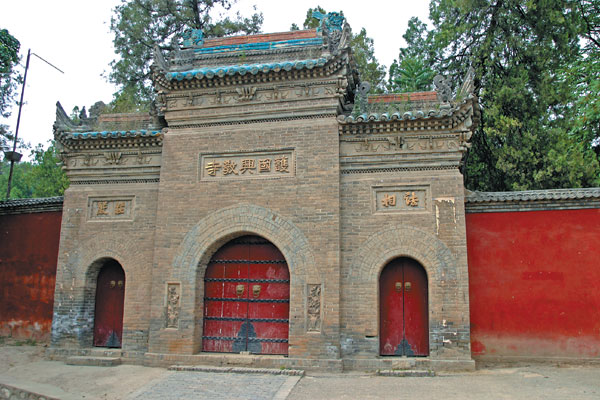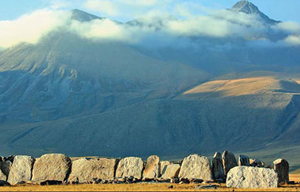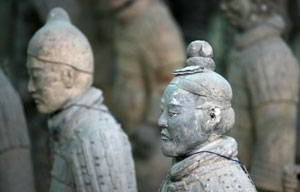
 'Taken 2' grabs movie box office crown
'Taken 2' grabs movie box office crown
 Rihanna's 'Diamonds' tops UK pop chart
Rihanna's 'Diamonds' tops UK pop chart
 Fans get look at vintage Rolling Stones
Fans get look at vintage Rolling Stones
 Celebrities attend Power of Women event
Celebrities attend Power of Women event
 Ang Lee breaks 'every rule' to make unlikely new Life of Pi film
Ang Lee breaks 'every rule' to make unlikely new Life of Pi film
 Rihanna almost thrown out of nightclub
Rihanna almost thrown out of nightclub
 'Dark Knight' wins weekend box office
'Dark Knight' wins weekend box office
 'Total Recall' stars gather in Beverly Hills
'Total Recall' stars gather in Beverly Hills
Buddhist temple seeks to preserve on-site buildings
Updated: 2013-04-11 15:47
By Jin Haixing (China Daily)
|
||||||||
 |
|
A gate of the Xingjiao Temple in Xi'an, Shaanxi province.[Photo/China Daily] |
Experts called for more discussions and consultations on protecting a famous Buddhist temple, which was asked by the local government to remove most of its buildings.
Part of the Chinese section of the Silk Road, the Xingjiao Temple was told to remove the buildings as part of local government efforts related to the preparation for the Chinese Silk Road's UNESCO World Heritage Site application, authorities said on Wednesday.
Xingjiao Temple, in Duqu township in Chang'an district of Xi'an, Shaanxi province, is famous because the bone relics of a renowned Chinese Buddhist monk named Xuanzang were buried there.
The Tang Dynasty (AD 618-907) monk became famous for his 17-year overland journey to bring Buddhist scriptures from India to China, which provided the inspiration for the classical novel Journey to the West, written by Wu Cheng'en during the Ming Dynasty (1368-1644).
The temple, with a history of 1,300 years, will apply for the World Heritage List with the pagoda, where the remains of Xuanzang are buried.
The temple received a notice from the local government to remove almost two-thirds of its buildings before the end of May. Wang, the head of the publicity department of Chang'an district in Xi'an, confirmed the news to China Daily on Wednesday.
A team that includes experts from city planning, cultural relics preservation and architecture had conducted detailed field research for the preservation plan of the temple, he said.
The removal will focus mainly on those buildings constructed by the monks themselves, which have little value for cultural preservation, he told China Daily.
However, monks of the temple expressed their concerns about the plans.
Most Viewed
Editor's Picks

|

|

|

|

|

|
Today's Top News
Boston bombing suspect reported cornered on boat
7.0-magnitude quake hits Sichuan
Cross-talk artist helps to spread the word
'Green' awareness levels drop in Beijing
Palace Museum spruces up
First couple on Time's list of most influential
H7N9 flu transmission studied
Trading channels 'need to broaden'
US Weekly

|

|










